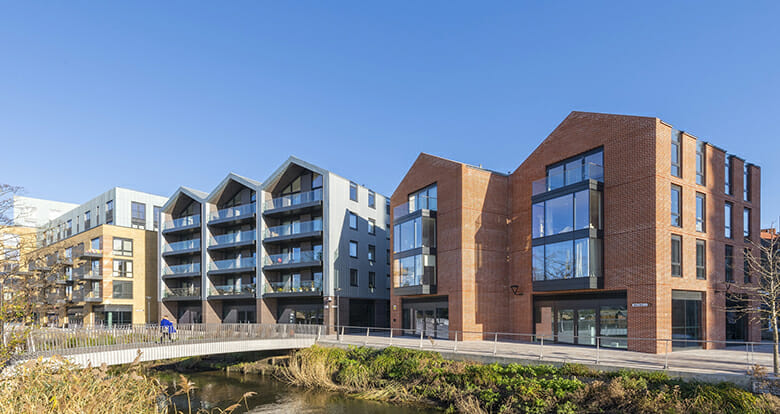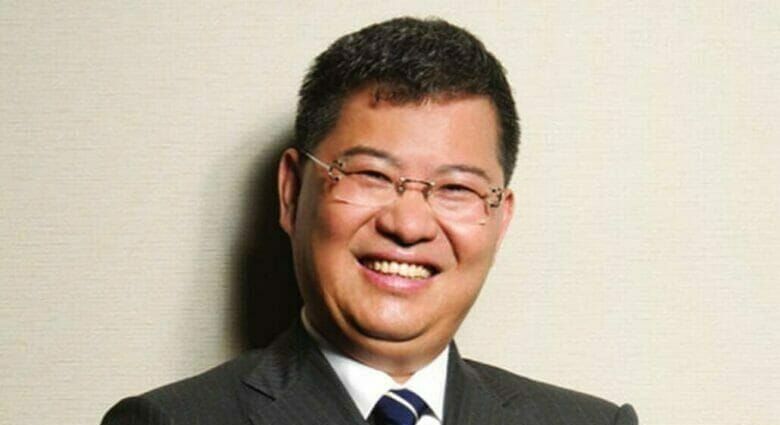
Greenland sold off the final two phases of its Ram Quarter development in London earlier this year
S&P Global Ratings on Wednesday downgraded Greenland Holding after judging the mainland developer’s payment extension on an offshore bond as a default in all but name.
The agency cut the long-term issuer rating on Greenland, whose controlling shareholder is Shanghai’s municipal government, by two notches to “selective default” following completion of the one-year extension of the company’s $500 million bond due on 25 June.
“We view the transaction as a distressed debt restructuring and tantamount to a default,” S&P said in a release. “Had the notes not been extended, Greenland likely would have lacked the resources and funding options to fully repay them upon maturity.”
S&P noted that Greenland still faces offshore debt maturities totalling $2.4 billion over the next 12 months. The agency said it will reassess the developer’s credit profile post-transaction when more information becomes available for analysing Greenland’s financial and liquidity position.
Warning Signs Bear Out
The fresh downgrade comes after S&P in late May lowered its long-term issuer credit rating on Greenland to CC from B- on the belief that the top-10 developer had limited accessible cash to support its significant upcoming offshore maturities. That demotion was in response to Greenland’s 27 May announcement that it would seek an extension on the $500 million bond.

Greenland founder and chairman Zhang Yuliang
The extension plan — which surprised investors who had perceived state-backed Greenland as a pillar of stability amid China’s real estate crisis — was floated just days before news broke that the developer had sold its strata-titled Lachlan’s Square Village mall in the Sydney suburb of Macquarie Park.
The builder sold the commercial complex to Australia’s Revelop for A$30 million ($21.6 million), with the property forming part of Greenland’s A$800 million NBH at Lachlan’s Line mixed-use development.
In March, Reuters reported that Greenland had scrambled for funds late last year to pay a $500 million offshore bond that came due in December. The company was rescued after Shanghai authorities told local state-owned enterprises to step in and buy new Greenland debt, Reuters said, citing sources who spoke to the news agency.
The near default didn’t prevent Greenland from reappointing founder and chairman Zhang Yuliang, 66, to a fresh four-year term in February. The Shanghai native became a rare example of an executive in China’s state sector to extend his tenure deep into his sixties.
Unwinding the Overseas Empire
In February, Greenland’s UK unit revealed to Mingtiandi that it had sold off the final two phases of the Ram Quarter project it purchased for £135.7 million ($184 million) in 2014, with media reports indicating that the disposal came at a £40 million price point.
Greenland had announced the purchase of the former Ram Brewery site in Wandsworth, London in January 2014 as its first project in the UK, as the state-run giant took a leading role in a wave of Chinese outbound real estate investment by snatching up projects in Europe, North America, Australia and Asia.
That outbound wave hit a wall in 2017, when mainland authorities clamped down on capital outflows over debt and foreign exchange concerns. Since that time, Greenland has been unwinding the majority of its overseas holdings, including selling off a piece of its Pacific Park project in Brooklyn in 2018 and dumping the undeveloped site of a San Francisco Bay area project for $308 million that same year.
Greenland’s other major UK project, a 67-storey residential tower near Canary Wharf called the Spire, has halted construction since 2019.
Leave a Reply